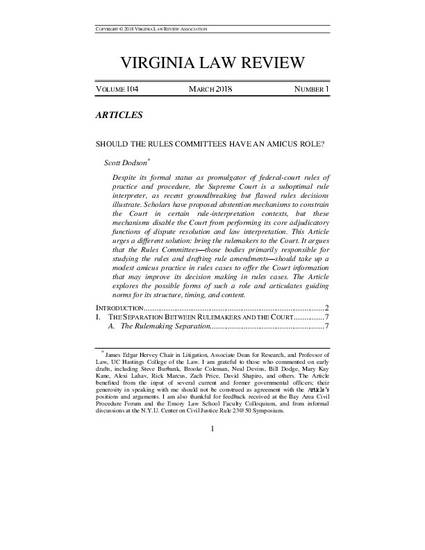
Article
Should the Rules Committees Have an Amicus Role?
104 Virginia Law Review 1
(2018)
Abstract
Despite its formal status as promulgator of federal-court rules of practice and procedure, the Supreme Court is a suboptimal rule interpreter, as recent groundbreaking but flawed rules decisions illustrate. Scholars have proposed abstention mechanisms to constrain the Court in certain rule-interpretation contexts, but these mechanisms disable the Court from performing its core adjudicatory functions of dispute resolution and law interpretation. This article urges a different solution: bring the rulemakers to the Court. It argues that the Rules Committees—those bodies primarily responsible for studying the rules and drafting rule amendments—should take up a modest amicus practice in rules cases to offer the Court information that may improve its decisionmaking in rules cases. The article explores the possible forms of such a role and articulates guiding norms for its structure, timing, and content.
Keywords
- rulemaking,
- advisory committee,
- rules committee,
- amicus,
- amicus curiae,
- supreme court,
- twombly,
- dukes,
- wal-mart,
- rule 23,
- rule 8,
- solicitor general
Disciplines
Publication Date
2018
Citation Information
Scott Dodson, Should the Rules Committees Have an Amicus Role?, 104 Virginia Law Review 1 (2018)
